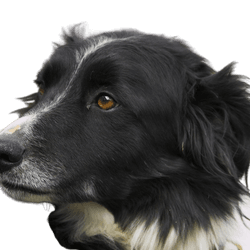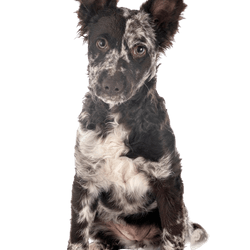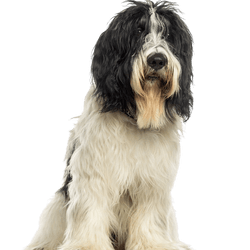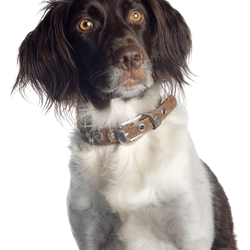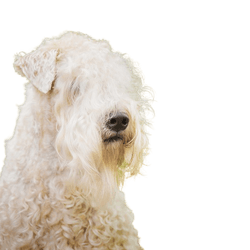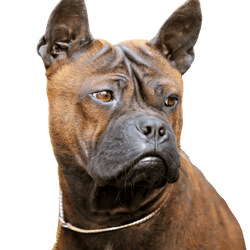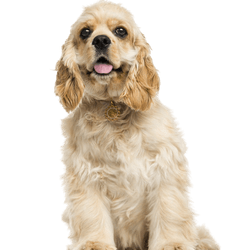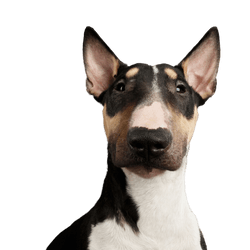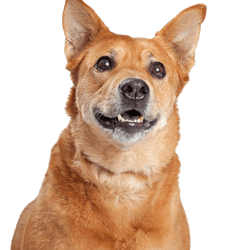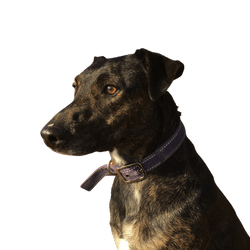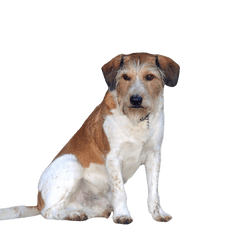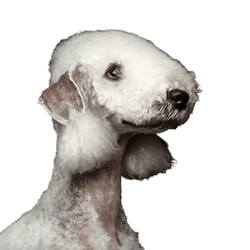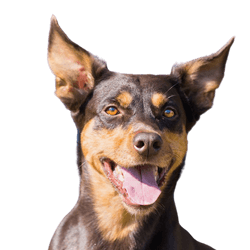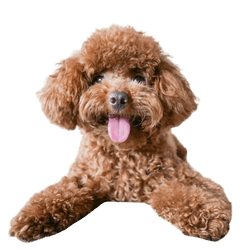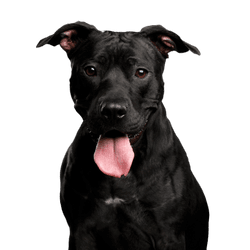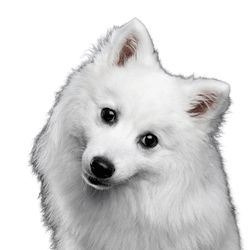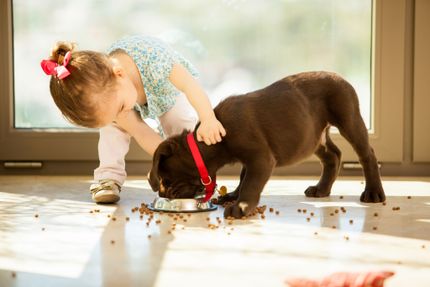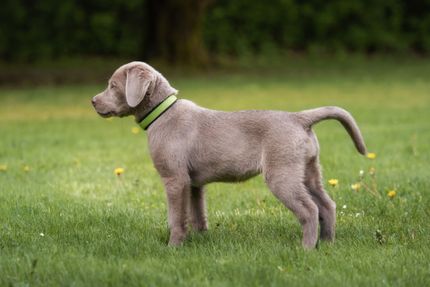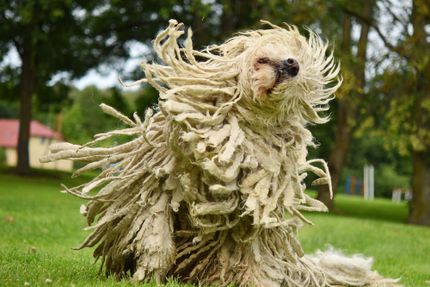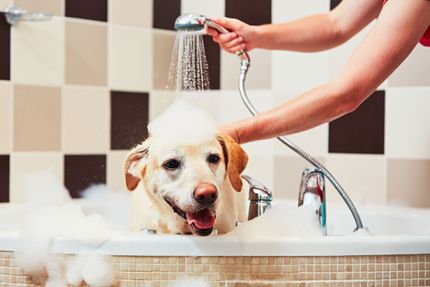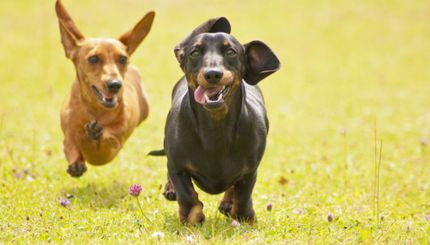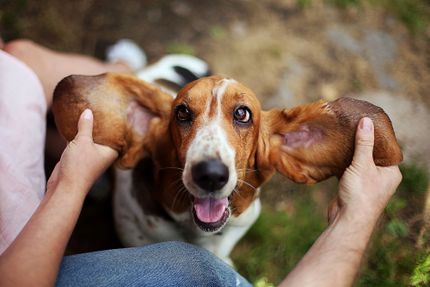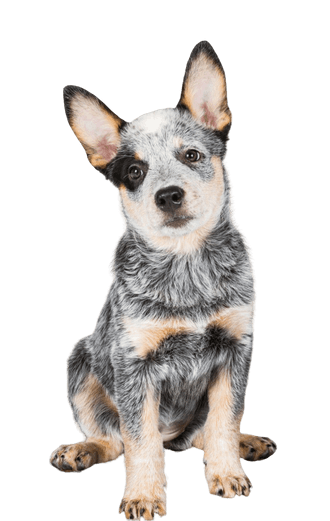
Australian Cattle Dog Breed description: Character & Co
Australian Cattle Dog
Facts & Origin
Features of the Australian Cattle Dog at one glance
The Australian Cattle Dog, also called Heeler, is a dog breed recognised by the FCI - Fédération Cynologique Internationale. They come from Australia and belong to the herding and driving dogs (Group 1, Section 2, Standard No. 287).
The Australian Cattle Dog Stumpy Tail
The Australian Cattle Dog Stumpy Tail is an FCI provisionally recognised dog breed from Australia (FCI Group 1, Section 2, Standard No. 351). It has a shorter tail than the Australian Cattle Dog, apart from that it has the same characteristics.
Origin and history of the Australian Cattle Dog
The Australian Cattle Dog has its origin in Australia in 1830. At that time, the early settlers of this hot country needed a robust and resilient cattle herding dog that could easily cope with the extreme climatic and geographical conditions of the Australian bush. Over several decades planned breeding trials were executed. In these experiments, the native Dingos were also included, which brought perfect requirements for life in the Australian vegetation. Australian Cattle Dog breeders made it their goal to produce a visually attractive dog on the one hand, one that's appearance could be judged at dog shows according to a fixed standard. On the other hand the breed characteristics of a working dog should be preserved. In the course of the 19th centur, the Australian Cattle Dog developed into the most widespread breed among herding dogs of Australia. In 1903, the first breed standard for this dog breed was established and in 1979 the Australian Cattle was recognised by the FCI.
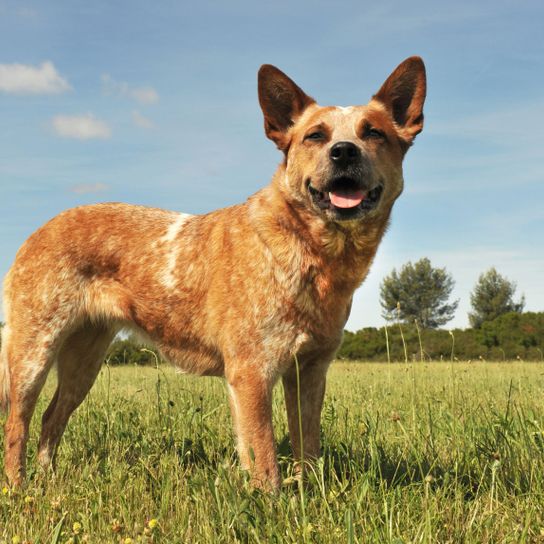
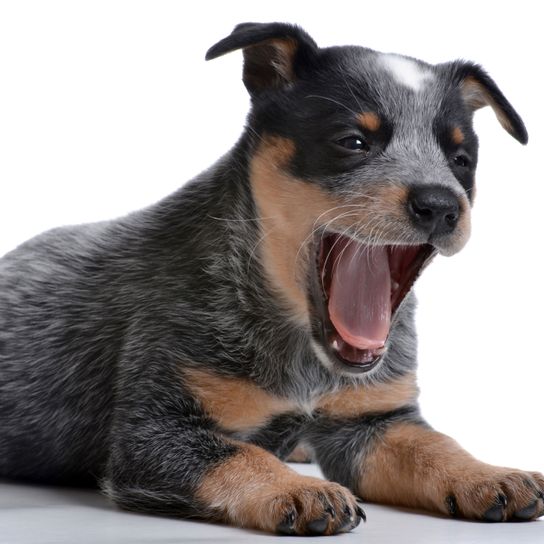
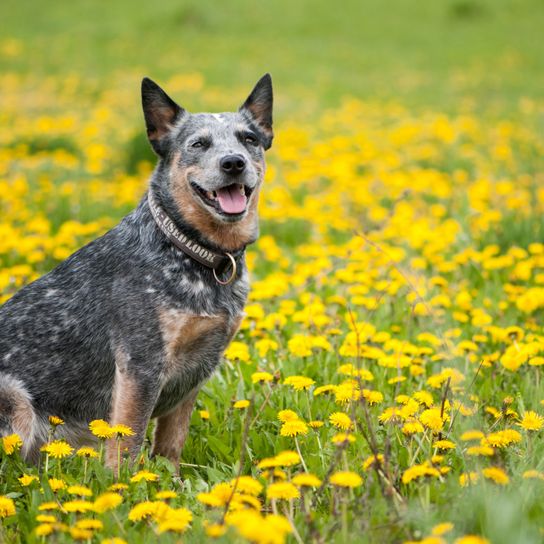
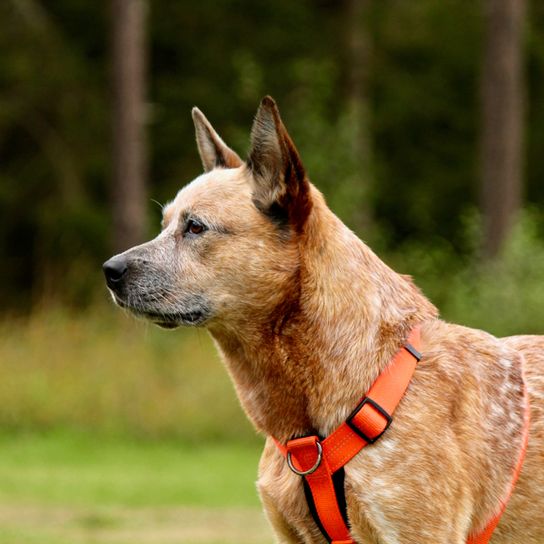
| Alternate Name | Heeler, Blue Heeler, Australian Cattle Dog (Blue Heeler), Australian Stumpy Tail Cattle Dog |
| Origin | Australia |
| Life expectancy | 10 - 12 years |
| Care requirements | low-maintenance |
| Activity level | average |
| FCI group | Cattledogs (except Swiss Cattledogs) |
| AKC group | Herding Group |
| KC group | Pastoral Group |
Australian Cattle Dog mixes
Attitude, character and temperament of the breed
Characteristics of the Australian Cattle Dog
Since the Australian Cattle Dog was bred as a robust cattle dog, it is still an attentive and resistant guard dog, which shows itself as confident and fearless. It has an innate protective instinct and defends and guards its house and yard tirelessly. It shows a natural distrust towards foreign dogs and people. Nevertheless, it is considered to be a sociable and very well trainable dog.
Training of the Australian Cattle Dogs
When training this dog breed, it should always be remembered that you are dealing with a temperamental herding dog. Besides daily walks, the Australian Cattle Dog should also be offered other activities. As an intelligent, willing to learn and active dog, dog sports like Agility, Flyball or Frisby but also Obedience Training or Dogdancing are very suitable for this dog breed. The willing-to-work Australian Cattle Dog is also suitable for more demanding training, such as therapy, rescue or medical dog. They master the required tasks of these jobs perfectly with their independent way of acting and thinking. They need to feel challenged in their everyday life, because otherwise they can show themselves as discontent and impatient. Because of their natural distrust towards unknown dogs and people, it is highly recommended to get the Australian Cattle Dog puppy used to a lively everyday life as early as possible. This will make it easy for them to get fully involved into family life later on and to successfully master the many and varied tasks of a family dog.
Character
Usage
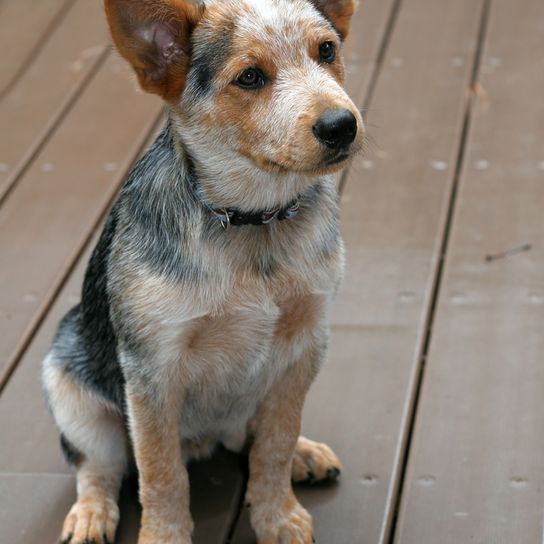
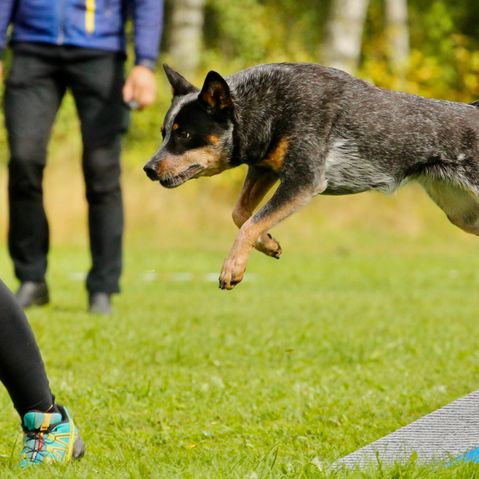

Health and breeding information
Breed-specific diseases of the Australian Cattle Dogs
The Cattle Dog is a robust dog breed. However, hereditary diseases are known for them. Some of these hereditary diseases are probably a result of their coat colour. Among the most common diseases are
- Sensorineural deafness
- Polioencephalomyelopathy, a hereditary degenerative nervous disease
- Canine ceroid lipofuscinosis
- Blindness
- Other eye diseases
Buying an Australian Cattle Dog
The purchase of an Australian Cattle Dog must be well considered. Beforehand, it should be conscientiously checked whether the active and demanding dog fits into your idea of life. If you are looking for an Australian Cattle Dog puppy, you should inquire with a breeder from a serious breeding association. It is also important to be aware of the possible hereditary diseases of this dog breed. A visit to his breeder's home can give you a first insight into the early life of your puppy and you will have the possibility to get to know the parents. Everything should make a healthy and balanced impression on you.


The Australian Cattle Dog is a medium-sized, agile dog. Its body is compact and very robust. Australian Cattle Dog males grow to a height of 46cm to 51cm and weigh up to 25kg. Australian Cattle Dog females reach a withers height of 43cm to 48cm and weigh an average of 16kg to 20kg. The Australian Cattle Dog has straight, hard hair and a dense undercoat, which makes it suitable even for wet weather conditions. They can appear in different colour variations.
Predominant are the colours
- Red and blue,
- as well as red speckled and blue speckled.
- Typical for this dog breed are also tan markings on the head and tail.
The Australian Cattle Dog has a life expectancy of about 10 years.
Special features and interesting facts about the Australian Cattle Dog
Australian Cattle Dog puppies are born white and will develop the future colour of their fur only after a few weeks. Yet their mask and patches are recognisable from birth. However, it is possible to determine the expected coat colour of the Cattle Dog puppies early. The colouring of the skin on the paw pads of the little puppies gives a first insight into what their appearance will be later. Black or blue paw pads indicate a blue dog, brown or red paw pads indicate a red cattle dog. The bigger the pink part of the skin is, the lighter the coat of a growing cattle dog will be.
Care and feeding of the Australian Cattle Dogs
Because of their short coat the Australian Cattle is an easy to groom dog. Daily brushing or trimming is not necessary with this dog breed. The Australian Cattle Dog does not need a special dietary plan, it proves to be a rather unproblematic boarding dog. However, regular visits to the vet are recommended due to the known hereditary diseases. A half-yearly expert check up can prevent possible diseases or detect them at an early stage, so that quick action can be taken.
| Fur length | short |
| Fur | - |
| Ear shape | Standing Ears |
| Tail | fanned out |
| Anatomy | rugged |
| Size ♀ | 43 - 48 cm |
| Weight ♀ | 14 - 15 kg |
| Size ♂ | 46 - 51 cm |
| Weight ♂ | 15 - 16 kg |
| Suitable For | - |
Colors
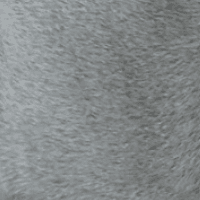
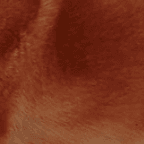

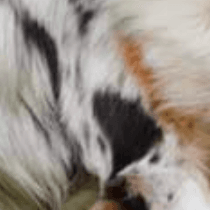



Known Diseases
Eye infections
Chronic eye infections can be very painful in dogs and can be treated with medication. In rare cases, the cornea must be treated.
Nervous disorders
Nervous disorders are manifested, for example, by disturbances in perception, neurological abnormalities such as tremors, apathy, convulsions, paralysis, tilting of the head, uncontrolled urination and defecation, and behavioural abnormalities.
Numbness
Often occurs in old age.
Other medium dogs
Useful Articles
You can find articles that might interest you in the dogbible blog to match your favorite breed.
Visit our magazineto stay up to date on dog trends.
To find out more, view our Privacy Policy
Find here the breed that suits you and find out what character traits it has. Here you can also learn more about the origin, size and weight of your favorite breeds.
Matching your favorite breed, you'll find articles that might interest you on the dogbible dog blog.
Dog kennel: building, buying, advantages, tips
Popular dog breeds - these are the 15 most common dog breeds in Germany and Austria
Lyme disease in dogs - symptoms & treatment and why its so dangerous





